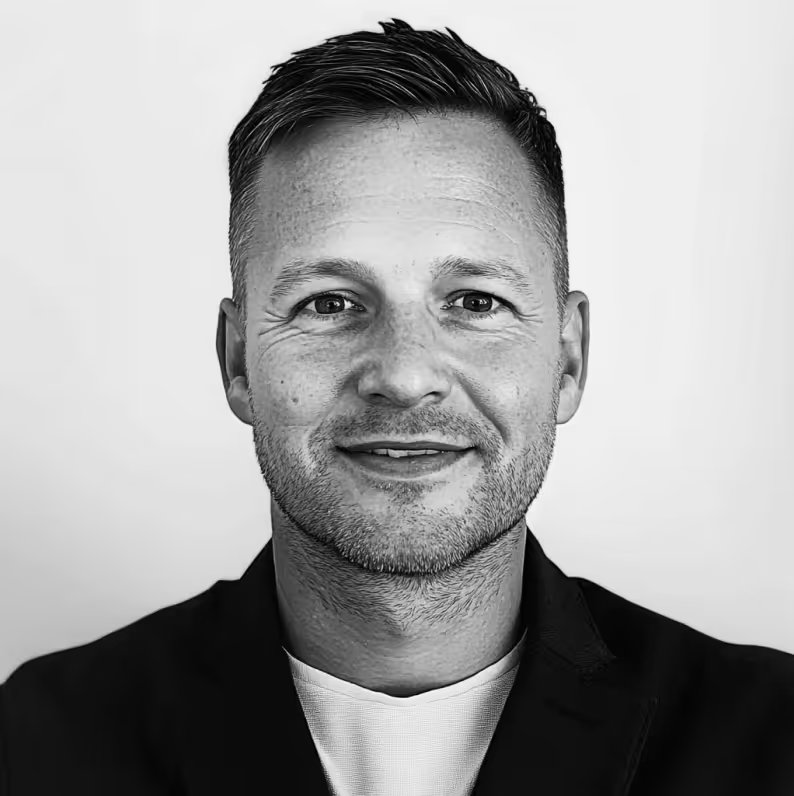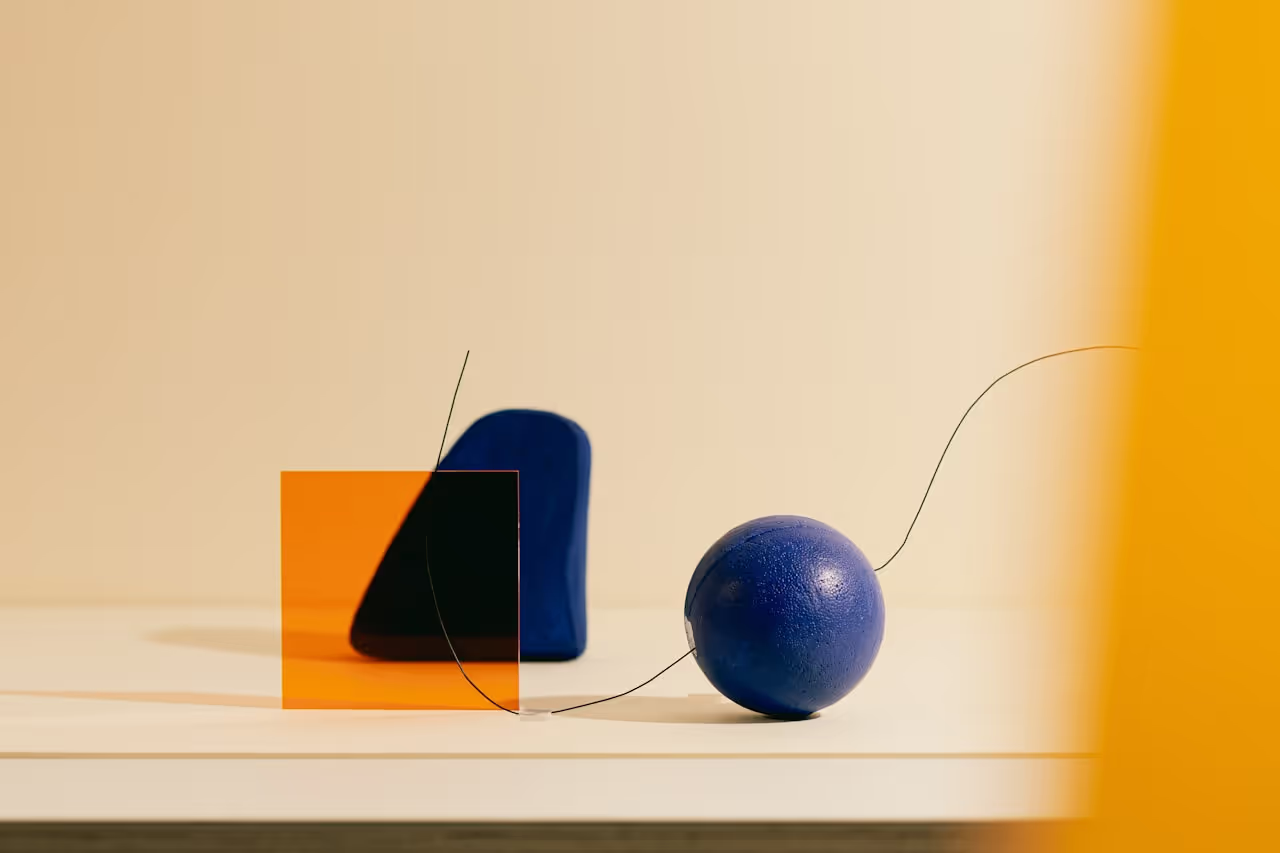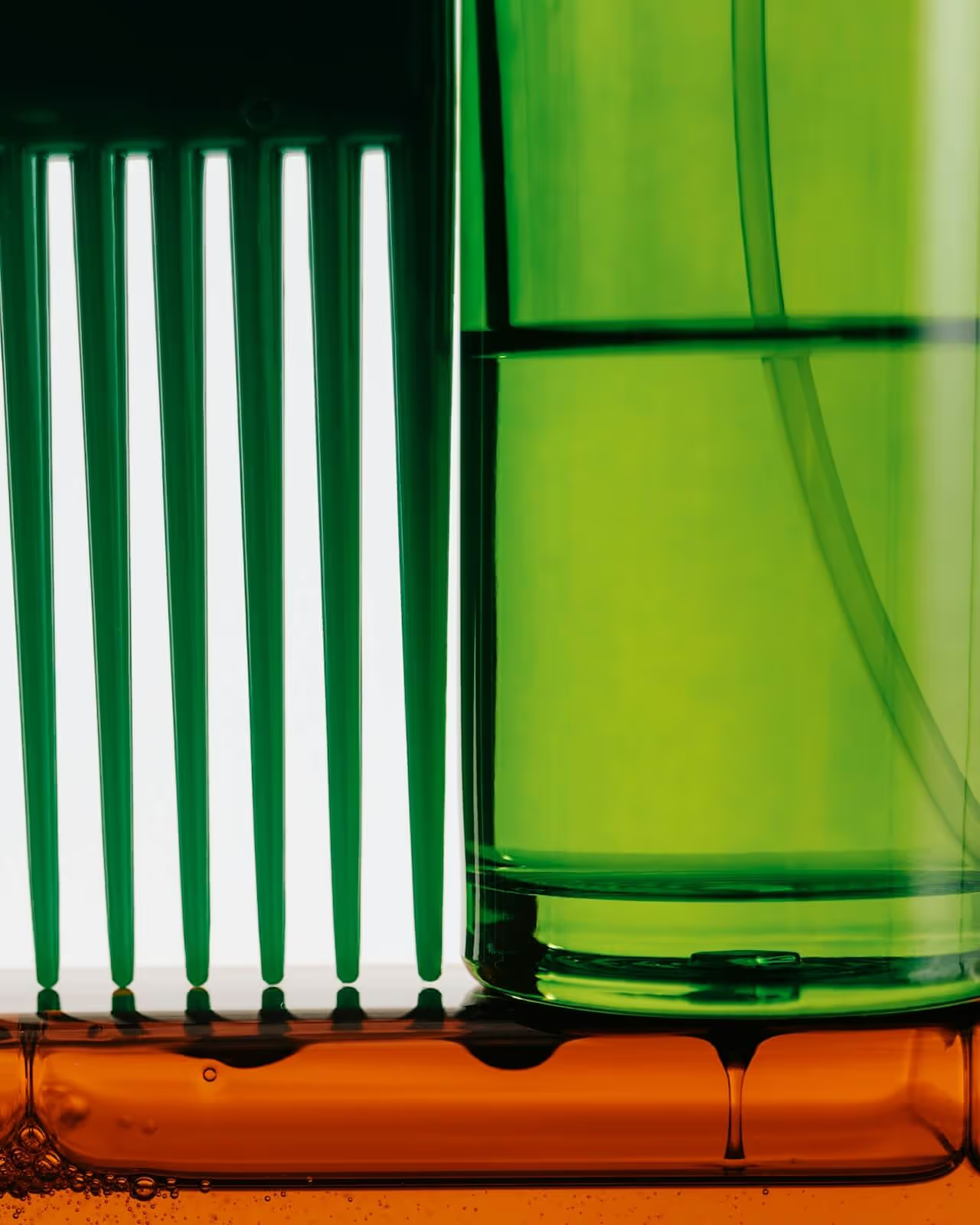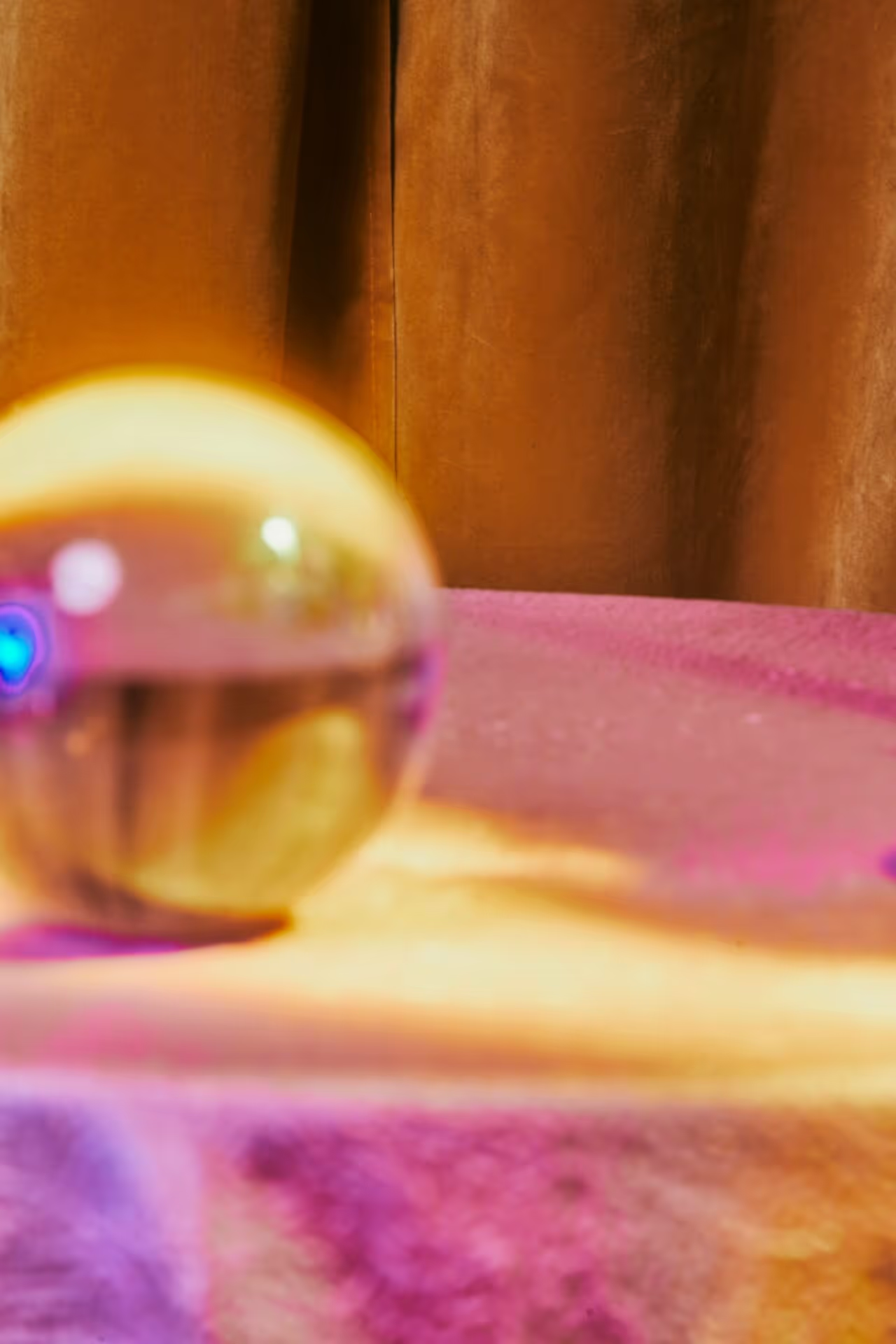Shopping for branding services as a startup founder can feel like navigating a maze blindfolded. One agency quotes $200,000 for a six-month project. A freelancer offers a logo for $500. Another agency won't even discuss pricing until after a discovery call. You're left wondering: what should this actually cost, and what am I supposed to get for my money?
This is why startup branding packages have become the industry standard. Instead of custom proposals that take weeks to negotiate, packages offer transparent pricing, clear deliverables, and timelines you can plan around. You know exactly what you're getting, how long it takes, and what it costs before committing to anything.
For founders operating on limited runway and tight timelines, this clarity is invaluable. You can compare options, budget appropriately, and make confident decisions without endless back-and-forth. More importantly, tiered packages mean you're not overpaying for elements you don't need yet, while ensuring you have the foundation to scale.
This guide breaks down what's typically included in startup branding packages, what you should expect to pay in 2026, and how to choose the right level of investment for your stage.
"When startups ask about branding packages, they're really asking for clarity—what they'll receive, how quickly they'll get it, and what it will cost. That's exactly why we've structured our offerings into clear tiers that align with different startup stages and needs."
Dmitry Komissarov,
Founder, Metabrand
What's Usually in a Startup Branding Package
Branding packages vary by agency, but most follow a similar structure with core components and optional add-ons. Here's what you should expect to find.
Logo and Identity Basics
This is the foundation of any branding package. You'll receive:
Primary Logo: Your main logo mark in multiple formats (horizontal, vertical, icon-only versions). Professional agencies provide these as vector files (AI, SVG, EPS) that scale infinitely without losing quality, plus standard formats (PNG, JPG) for everyday use.
Color Palette: A strategic color system including primary brand colors, secondary accent colors, and neutral tones for backgrounds and text. You'll get specific color codes (hex for web, RGB for screens, CMYK for print) so everyone uses exactly the same shades.
Typography System: Selection of 1-2 typefaces for your brand, with clear rules about when to use each one. This includes font files or links to web fonts, plus guidelines for sizing, spacing, and hierarchy.
Logo Usage Rules: Documentation showing correct and incorrect logo applications—minimum sizes, clear space requirements, background dos and don'ts, and what never to do with your logo.
The quality of these basics separates professional packages from cheap logo mills. Strategic color choices, carefully selected typography, and well-designed logo systems work across all applications without constant designer involvement.
Brand Guidelines
Brand guidelines are your reference document for maintaining consistency as you grow. The depth varies significantly between package tiers.
Basic Guidelines (Entry-Level Packages): A 10-15 page PDF covering logo usage, color palette, typography basics, and a few examples. Enough to keep your team aligned on fundamentals but not comprehensive.
Standard Guidelines (Mid-Range Packages): 20-30 pages including everything above plus voice and tone guidance, photography style, iconography approach, and more application examples. This level works for most early-stage startups.
Comprehensive Guidelines (Advanced Packages): 40+ pages functioning as a complete brand system. Includes detailed do's and don'ts, templates, sub-brand rules if applicable, extensive application examples, and sometimes interactive digital versions using tools like Frontify or Notion.
Think of guidelines as the instruction manual for your brand. The more comprehensive they are, the easier it is for new team members, contractors, and partners to create on-brand materials without constantly asking questions.
Messaging Frameworks
The best branding packages don't stop at visuals—they include verbal identity and messaging structure.
Core Messaging: Your positioning statement, tagline, and one-sentence description that captures what you do and why it matters.
Value Propositions: 3-5 key benefits articulated clearly for your target audience. These become the foundation for website copy, sales conversations, and marketing materials.
Brand Voice and Tone: Description of how your brand sounds across communications. Are you authoritative or approachable? Technical or accessible? Bold or thoughtful? Good frameworks include specific adjectives and concrete examples.
Messaging Hierarchy: A structure showing how to communicate your value at different levels—from elevator pitch to detailed explanations. This helps ensure consistency whether someone encounters your brand on Twitter, your website, or in a sales meeting.
Mid-range and advanced packages typically include messaging frameworks, while entry-level packages may focus primarily on visual identity.
Applications and Templates
Raw brand assets aren't enough—you need them applied to actual materials you'll use. Most packages include some combination of:
Pitch Deck Template: A branded slide deck template with layouts for common slide types (problem, solution, traction, team, etc.). This alone saves dozens of hours when preparing investor presentations.
Social Media Templates: Branded templates for platforms like LinkedIn, Twitter, and Instagram. These allow your team to create professional-looking posts without design skills.
Business Cards: Physical or digital business card designs for your founding team.
Email Signatures: HTML email signatures matching your brand identity.
Letterhead and Documents: Templates for proposals, one-pagers, or official correspondence.
Marketing One-Pagers: Sales collateral or product sheets with your brand applied.
The number and type of applications scale with package price. Entry-level might include 2-3 items, while comprehensive packages might deliver 10+ ready-to-use templates.
Website Design Add-Ons
Many branding agencies now offer website design as part of advanced packages or as an add-on to branding work.
Website Design Only: Visual designs (mockups) for 5-10 key pages showing how your brand translates to web. You handle development separately or hand off designs to your developer.
Website Design + Development: Complete website including designs and functional build. This might be a custom WordPress site, Webflow build, or coded solution depending on the agency.
Landing Page Focus: A single high-converting landing page perfect for early-stage startups testing product-market fit or running ad campaigns.
Full Marketing Site: 8-15 pages covering all standard sections (home, about, product/features, pricing, blog, contact, resources, etc.) with SEO optimization and content strategy.
Website add-ons typically increase package costs by $5,000 to $25,000 depending on complexity.
Typical Price Ranges in 2026
Understanding the market rates helps you budget appropriately and evaluate whether quotes make sense. Here's what startup branding packages cost in 2026 across different tiers.
$5K–$8K Starter Packages
What's Included: Core brand identity (logo, colors, typography), basic brand guidelines (10-15 pages), and minimal applications (usually business cards and social templates).
Timeline: 2-3 weeks
Best For: Pre-seed startups, solo founders, or companies testing an idea before significant investment. You get professional basics to launch without extensive brand system depth.
Limitations: Limited strategic depth. Messaging frameworks are basic or absent. Few ready-to-use applications. You'll likely need design help for materials beyond included templates.
Who Offers This: Senior freelancers with startup experience, small boutique studios, or entry-tier packages from specialized startup agencies.
$10K–$15K Mid-Range Packages
What's Included: Complete brand identity, comprehensive brand guidelines (20-30 pages), messaging framework with positioning and voice, 5-8 branded applications (pitch deck, social templates, one-pagers, email signatures), and sometimes basic website design concepts.
Timeline: 3-4 weeks
Best For: Seed-stage startups preparing for growth, companies preparing to fundraise, or founders who want strategic positioning alongside visual identity.
What Makes This Different: This tier includes strategic thinking—positioning workshops, competitive analysis, and messaging development. You're not just getting design; you're getting brand strategy that informs marketing and communication decisions.
Who Offers This: Specialized startup branding agencies, experienced brand strategists, and mid-tier studios focused on tech companies.
$15K–$20K Advanced Packages
What's Included: Full brand strategy and identity system, comprehensive guidelines (30-40+ pages), detailed messaging framework, 8-12 branded applications and templates, pitch deck design, and either website design concepts or basic website build.
Timeline: 4-6 weeks
Best For: Seed to Series A startups scaling operations, companies moving upmarket, or founders who want comprehensive brand systems that don't require constant designer involvement.
Strategic Depth: Includes extensive positioning work, audience research, competitive analysis, and sometimes user testing. The deliverables are production-ready systems, not just starting points.
Who Offers This: Established startup branding agencies, specialized brand consultancies, and agencies with dedicated startup practices.
$25K–$50K+ Premium Packages
What's Included: Everything above plus full custom website design and development, advanced features (animations, interactive elements, custom illustrations), content strategy and copywriting, SEO foundation, ongoing support, and sometimes additional brand assets like custom iconography or illustration systems.
Timeline: 6-10 weeks
Best For: Series A+ startups with significant funding, companies preparing for major launches, or startups where brand is a primary competitive advantage (consumer-facing products, B2C platforms).
What Makes This Premium: You're getting comprehensive brand and web solutions from a single partner. The strategic depth is significant, the creative execution is high-end, and the deliverables are extensive enough that you rarely need external design help for 6-12 months.
Who Offers This: Top-tier startup agencies (Red Antler, Koto, Motto), specialized brand consultancies, and agencies with proven track records launching successful startups.
How Prices Vary by Provider Type
The same scope can cost dramatically different amounts depending on who you work with:
Freelancers ($3K–$15K): Most affordable but variable quality. Senior freelancers with startup experience can deliver excellent work at lower prices than agencies. Junior freelancers often lack strategic thinking and startup expertise. Quality depends entirely on individual talent and experience.
Specialized Startup Agencies ($10K–$40K): Mid-range pricing with startup-optimized processes. These agencies understand early-stage constraints, move quickly, and offer tiered packages. Good balance of quality, strategy, and affordability.
Premium Branding Agencies ($50K–$150K): High-end creative work and extensive strategic depth. Slower timelines and corporate processes. Appropriate for well-funded startups where brand investment is critical to competitive positioning.
Corporate Brand Consultancies ($100K–$500K+): Enterprise-grade branding with extensive research, stakeholder management, and global rollout capabilities. Designed for established companies, not early-stage startups.
How to Choose the Right Package for Your Startup Stage
Your stage and resources should determine your branding investment. Here's how to think about the right package for where you are.
Pre-Seed: Lean Basics That Look Professional
Your Situation: You're validating your idea, building an MVP, or preparing to launch. You have limited capital (bootstrapped or small pre-seed round under $500K). You need to look legitimate to early customers and potential investors, but you can't spend $50K on branding.
Recommended Investment: $5K–$10K
What to Get:
- Core brand identity (logo, colors, typography)
- Basic brand guidelines (10-20 pages)
- Essential applications (business cards, basic pitch deck template, social templates)
- Simple messaging framework (positioning statement, tagline, core value props)
What to Skip for Now:
- Extensive strategic workshops (you're still learning your market)
- Complex brand systems with elaborate sub-brands
- Full custom website (use quality templates instead)
- Extensive application libraries
Why This Works: You establish professional foundations without overspending on elements that might change as you discover your true product-market fit. Your brand looks credible, but you haven't locked yourself into expensive systems that may need evolution.
Seed Stage: Growth-Ready Identity + Website
Your Situation: You've validated product-market fit and raised a seed round ($500K–$3M). You're preparing to scale customer acquisition, expand your team, and potentially raise Series A within 12-18 months. Your initial branding feels insufficient for growth ambitions.
Recommended Investment: $15K–$25K
What to Get:
- Complete brand strategy including positioning workshops and competitive analysis
- Comprehensive brand identity system
- Detailed brand guidelines (25-35 pages)
- Full messaging framework with brand voice, value propositions, and positioning
- Extensive application templates (pitch deck, sales deck, one-pagers, social templates, email signatures)
- Professional website design and development (5-10 pages)
- SEO foundation and basic content strategy
What to Focus On:
- Differentiation from competitors (critical as you scale)
- Consistency across growing team and channels
- Materials that support fundraising (Series A deck needs polish)
- Website that converts visitors to customers or signups
Why This Investment Matters: This is the stage where branding pays dividends. You're hiring people who need to communicate consistently. You're scaling marketing that needs templates. You're pitching investors who expect professionalism. The foundation you build now should last 12-24 months without major overhaul.
Series A: Full Strategic System
Your Situation: You've raised $5M+ and are scaling aggressively. You're expanding into new markets, building enterprise sales, or preparing for significant growth. Your brand needs to work across multiple audiences, use cases, and geographies.
Recommended Investment: $25K–$50K+
What to Get:
- Comprehensive brand strategy with extensive market research
- Advanced brand identity system with sub-brand guidelines if needed
- Detailed brand guidelines (40+ pages) covering all scenarios
- Complete messaging architecture for different audiences and use cases
- Extensive template library covering all common needs
- Premium website with advanced features and conversion optimization
- Additional assets (custom illustrations, iconography, motion design)
- Ongoing support for brand implementation
Strategic Considerations:
- Brand needs to work for multiple customer segments (SMB vs. Enterprise)
- May need region-specific adaptations for international expansion
- Requires systems that non-designers can use correctly
- Should support diverse marketing channels (events, content, paid ads, partnerships)
Why Full Systems Matter: At this stage, brand inconsistency is costly. You have too many team members, too many touchpoints, and too much at stake to rely on ad-hoc decision making. A comprehensive system ensures everyone—from marketing to sales to product—represents the brand consistently.
Metabrand's Packages (Real-World Example)
To make pricing concrete, here's how Metabrand structures packages specifically for tech startups:
Launch Package — $8,000
Designed For: Pre-seed to early seed startups who need professional branding to launch or raise initial funding.
Timeline: 30 days from kickoff to delivery
What's Included:
Strategy & Positioning:
- Positioning workshop with founders
- Competitive landscape analysis
- Target audience definition
- Core messaging framework
Visual Identity:
- Logo system (primary, secondary, icon variations)
- Color palette (primary, secondary, neutral colors)
- Typography system (headings, body, special uses)
- Basic brand guidelines (15 pages)
Applications:
- Business card design
- Email signature template
- Social media templates (3 formats)
- Basic pitch deck template (10 slides)
Deliverables: All source files, brand guidelines PDF, application templates in editable formats
Best For: Technical founders who need credible branding to launch their product, start customer conversations, and begin fundraising without extensive marketing materials yet.
Growth Package — $15,000
Designed For: Seed-stage startups preparing to scale customer acquisition and raise Series A.
Timeline: 30-45 days
What's Included: Everything in Launch Package, plus:
Extended Strategy:
- Detailed competitive positioning analysis
- Messaging hierarchy for different audiences
- Brand voice and tone guidelines with examples
- Value proposition development
Enhanced Identity:
- Comprehensive brand guidelines (30 pages)
- Extended color palette for digital and print
- Photography and imagery guidelines
- Iconography style direction
Marketing Applications:
- Full pitch deck design (20-25 slides)
- Sales deck template
- Marketing one-pager template
- Social media content kit (10+ templates)
- Email newsletter template
- Case study/testimonial template
Additional Assets:
- LinkedIn company page design
- Presentation templates for team use
Deliverables: Complete brand system, all application templates, comprehensive guidelines, source files for everything
Best For: Funded startups actively scaling marketing, building sales processes, and preparing for next funding round. You need consistent brand execution across growing team.
Scale Package — $30,000
Designed For: Series A startups who need comprehensive brand and website to support aggressive growth.
Timeline: 45-60 days
What's Included: Everything in Growth Package, plus:
Complete Website:
- Custom website design (8-12 pages)
- Webflow or custom development
- Mobile-responsive implementation
- SEO foundation (technical SEO, meta tags, structure)
- Content strategy consultation
- Basic copywriting for core pages
- Integration with analytics and tracking
Advanced Branding:
- Custom illustration style or iconography system
- Motion design guidelines (logo animation, transitions)
- Comprehensive brand guidelines (40+ pages)
- Print materials (letterhead, folder, additional collateral)
Ongoing Support:
- 30 days post-launch support
- Brand consultation as needed
- Template additions based on needs
Deliverables: Full brand system, production website, complete template library, comprehensive guidelines, all source files, and one month of support
Best For: Well-funded startups making significant market push who need both brand and website to be best-in-class. You're competing against established players and need every advantage.
Why Metabrand's Package Approach Works
Transparent Pricing: No surprise costs or scope creep. You know exactly what you're paying and what you're getting.
Stage-Appropriate: Each tier aligns with typical startup needs and budgets at different growth stages.
Fast Delivery: 30-day sprints for most packages mean you're not waiting months to launch your brand.
Strategic Foundation: Even entry packages include positioning and strategy, not just design execution.
Scalable Systems: Brands built with growth in mind, so you're not rebranding in six months.
Startup Expertise: Pricing, timeline, and deliverables reflect real startup constraints and priorities.
What to Look for in Any Branding Package
Whether you work with Metabrand or another agency, evaluate packages against these criteria:
Clear Deliverables
You should know exactly what files, documents, and templates you're receiving. Vague descriptions like "complete brand identity" aren't enough. Look for itemized lists of deliverables with file formats specified.
Source File Ownership
Confirm you own all source files (AI, PSD, Figma files) not just exported PDFs and PNGs. Source files let you or future designers modify assets as needed.
Revision Policy
Understand how many revision rounds are included and how feedback is handled. Most professional packages include 2-3 rounds of revisions at key milestones.
Timeline Clarity
Know when each phase completes and what dependencies exist. If you need branding complete before a specific launch date or investor meeting, make sure the timeline accommodates it.
Strategic Components
The best packages include positioning, messaging, and competitive analysis—not just visual design. These strategic elements ensure your brand supports business goals.
Usage Rights
Confirm you have unlimited usage rights for all deliverables. Some agencies retain rights or charge additional licensing fees—avoid these complications.
Post-Delivery Support
Ask whether any support is included after final delivery. Even a brief consultation period helps handle questions that arise during implementation.
Red Flags in Package Offerings
"Unlimited Revisions"
Sounds great but often leads to endless cycles and delayed delivery. Structured revision rounds (2-3) with clear feedback processes work better.
Extremely Low Pricing
Packages under $3,000 typically deliver template-based work without strategic thinking or customization. You get what you pay for.
No Timeline Specified
If an agency won't commit to delivery timeline, expect delays and uncertain launch planning.
Vague Scope
"We'll figure out deliverables as we go" is a recipe for scope creep and disagreements. Insist on clear, documented deliverables upfront.
No Portfolio Examples
If an agency can't show completed packages from similar startups, they may lack relevant experience.
Hidden Costs
Watch for packages that seem affordable but have extensive additional fees (stock photos, font licensing, template customization, revision charges).
Making the Investment Decision
Branding packages aren't expenses—they're infrastructure investments. Here's how to think about ROI:
Time Saved: Quality branding packages include templates and systems that save your team dozens of hours monthly creating marketing materials, pitch decks, and content.
Fundraising Impact: Professional branding improves investor perception. While it won't secure funding alone, poor branding can disqualify you from serious consideration.
Marketing Efficiency: Consistent brand systems make marketing more effective. Recognition compounds over time when your brand looks and sounds the same across channels.
Hiring Advantage: Strong branding makes recruiting easier. Candidates evaluate companies partly on how professional and legitimate they appear.
Customer Trust: Especially in B2B, credible branding removes friction from sales processes. Professional presentation suggests professional product.
Rebranding Avoidance: Investing appropriately upfront prevents expensive rebrands 12-18 months later when your cheap initial branding becomes an obstacle.
Calculate ROI not just in revenue directly attributed to branding, but in time saved, opportunities enabled, and costs avoided.
Conclusion: Invest Smartly at Your Stage
Startup branding packages solve the clarity problem. Instead of navigating opaque proposals and uncertain costs, you know exactly what you're getting and what you'll pay.
The key is matching investment to your stage and needs:
- Pre-seed startups need professional basics without overcommitting to systems that might evolve ($5K–$10K)
- Seed-stage companies benefit from comprehensive brand and website packages that support scaling ($15K–$25K)
- Series A and beyond should invest in complete strategic systems that work across teams, markets, and use cases ($25K–$50K+)
Whatever your stage, choose packages that include strategic foundations, not just design execution. Your brand should clarify positioning, differentiate from competitors, and give your team systems they can use confidently.
The startups that succeed don't view branding as an expense to minimize—they see it as infrastructure to invest in appropriately. The right package at the right time accelerates growth rather than draining resources.
Ready to find the right branding package for your startup stage? Get a free estimate from Metabrand and see exactly what's included, how long it takes, and what it costs.
Stop guessing about branding costs. Start with clarity.






.avif)


